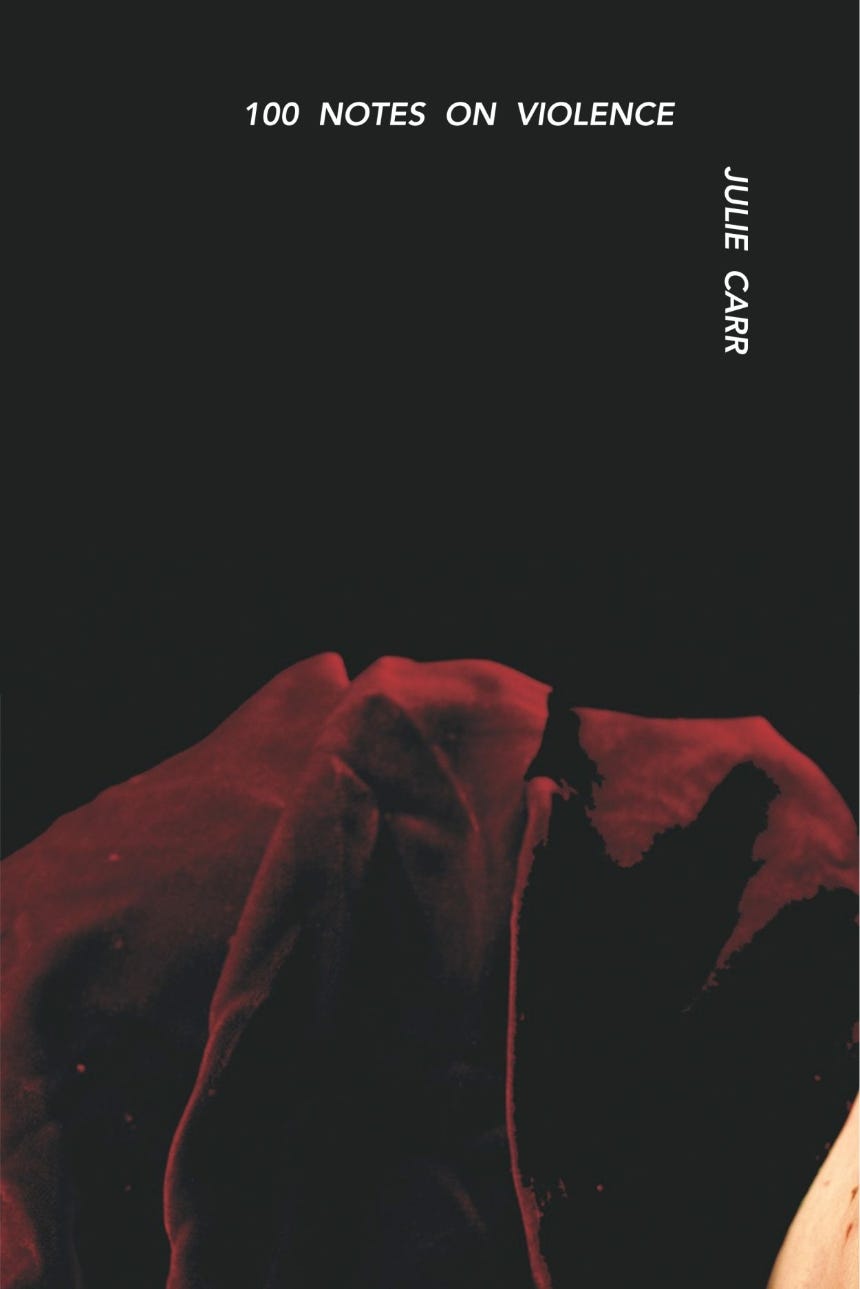from A river runs through it: a writing diary
, collaborating with Julie Carr
Julie Carr’s books are never that far from reach. Throughout my home office, shelves routinely overwhelm, with so many titles that need to be within reasonable distance. Anna Gurton-Wachter’s UTOPIA PIPE DREAM MEMORY (2019). Anne Boyer’s A Handbook of Disappointed Fate (2019). CA Conrad’s The Book of Frank (2009). Jack Spicer’s My Vocabulary Did This To Me (2008). Sarah Manguso’s Hard to Admit and Harder to Escape (2007). Norma Cole’s CROSSCUT UNIVERSE: Writing on Writing from France (2010). Rosmarie Waldrop’s Lawn of Excluded Middle (1992). William Hawkins’ The Madman’s War (1974). Ken Sparling’s Hush Up and Listen Stinky Poo Butt (2010). And Carr’s Equivocal (2007), one of my favourites of her work, although it might have been 100 Notes on Violence (2010) that introduced me to her work. There is a particular kind of precision to the poems in Equivocal I admire: a poetry that centres on the line, and the sentence. The collection also includes the poem “House/Boat,” a poem I first discovered on the Academy of American Poets’ website. As it begins:
So we shoveled it. Climbed over it. When a boy’s loved
he is loved. We kissed him at the countdownthen we went to bed.
Then I woke and on the screenan executioner
whose wife for himwas worried. Both on and off the screen
there was still a lot of snow. I went out and stuck my hand in it,
felt around for a handle. None.


